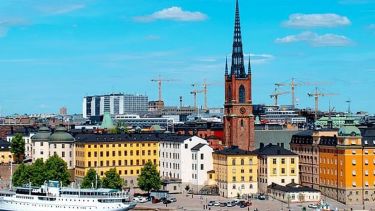The Function of Risk Groups
by Niklas Altermark, Sweden

Questions that have been central to critical disability studies and the activism of the disabled people’s movement permeates discussions about Covid-19. On a grand scale, our societies are confronted with the fact that bodies are fragile and open to injury. As a result, ableist ideals of self-sufficiency and self-mastery suddenly appear as illusory. However, judging by on-going debates about how the pandemic should be managed, the ethical and political implications of this are yet to sink in. Indeed, I believe that responses to the pandemic also need to be understood as ways of protecting the ableist fantasy of independency and full functioning.
In this respect, the notion of ‘risk groups’ is central. The function of ‘risk groups’ is to reassure ‘normal’ people that someone else will die. Reflecting on the Swedish public discussion about Covid-19, this short text will qualify this statement.
In Sweden, as elsewhere, people are supposed to be comforted by the idea that Covid-19 ‘only’ is really dangerous for ‘risks groups’. This is the first instance where the notion of ‘risk’ is activated to shield the ableist collective consciousness from important insights. The trope of ‘only risk groups’ works to restore the myth of self-sufficiency and self-mastery by placing risk somewhere else, with the elderly, the disabled, and those with chronic illnesses. We are told that for most people, who are ‘young and healthy’, this is just a bad cold if even that. By this, the young and the healthy are encouraged to think about their youth and their health as a shield against the virus. The ideal of full functioning is left intact. Of course, members of ‘risk groups’ are excluded from the presumed audience of such assertions – they are not among those that are supposed to be calmed down; they are the ones that will die.
Secondly, ‘only risk groups’ individualises ‘risk’ so that our interconnectedness is obscured. Your risk of dying from Covid-19 is separated from mine. If you belong to a risk group and I do not, this will only comfort me provided that your life is not very valuable to me. Hence, the assumption that the ‘young and healthy’ will be comforted is an expression of the devaluation of certain lives. At the same time, although present discourse tends to depict individuals in ‘risk groups’ as dependent and in need of protection, members of risk groups are also protecting others, as parents, lovers, friends, and as holders of jobs that are necessary for society to function. Come to think about it, societal collapse would probably be imminent if all members of risk groups were to die from Covid-19.
Lastly, the discourse on ‘risk groups’ obscures how risk is constituted by politics. In pandemic discourse, risk is described as a result of age, illness, and disability, biological in nature and prior to politics. The public debate creates the illusion that ‘risk’ is an effect of losing out in the ‘lottery of life’. This does not correspond to the worries I see expressed by disabled activists. Their primary concerns seem to be losing services or being left to die as a result of scarce health care resources, both distinctively political questions. In addition, the rapid spread of the virus in underfunded residential care services illustrate the political nature of the distribution of risk. Hence, even before the pandemic, precarity was unevenly distributed by a societal organisation that favours a narrow construction of ‘normalcy’. The lottery of life is skewed by dis-ableism: risk groups would be less at risk with better support and services, more equality and less discrimination. Risk groups would be less at risk if vulnerability was seen as constitutive of all human lives. The neglect of human vulnerability is also a system of distribution of vulnerability.
The fact that Covid-19 is a greater threat to some groups easily lends itself to the reproduction of risk as a mark of otherness. Against this, we need to refuse the individualisation of risk and insist that we carry it together. We need to acknowledge the political constituents of risk and ground our responses to the pandemic in mutuality. And we need to reject the idea that ‘normal’ people are safe and that ‘risk groups’ will die and the implicit presumption that this is kind of ok.

iHuman
How we understand being ‘human’ differs between disciplines and has changed radically over time. We are living in an age marked by rapid growth in knowledge about the human body and brain, and new technologies with the potential to change them.
